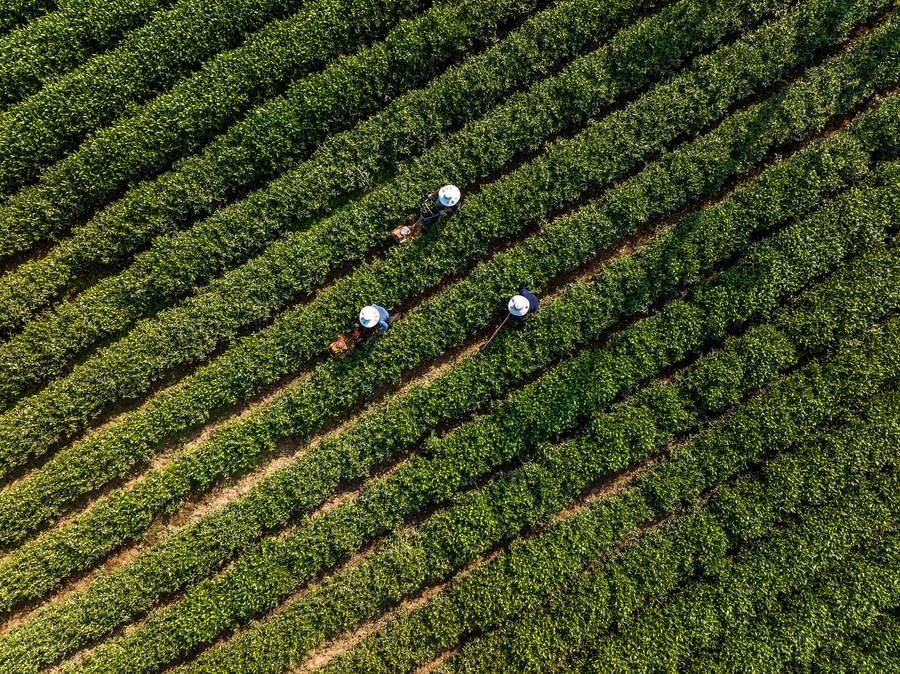
This aerial photo taken on Nov. 22, 2023 shows farmers working in a tea plantation in Jiandong village of Maoping township, Zigui County of Yichang City, central China's Hubei Province. (Photo by Wang Gang/Xinhua)
BEIJING, Dec. 12 (Xinhua) -- A group of Chinese researchers established the first pan-genome map of the tea plant and completed the pan-genome sequencing of 22 cultivars, facilitating the genomics-assisted breeding of the crop, according to Science and Technology Daily.
Tea is one of the world's oldest crops and is grown to produce a variety of flavored beverages. Despite advances in sequencing technologies, the genetic mechanisms underlying key agronomic traits of tea remain unclear.
Researchers from the Agricultural Genomics Institute at Shenzhen under the Chinese Academy of Agricultural Sciences, and other institutions selected 22 cultivars representing the broad genetic diversity of the tea plant for pan-genome sequencing and created a complete pan-genome map.
The research, which was published in the journal Nature Plants, discovered strong correlations between allelic variants and flavor-related chemistries.
The study also found multiple key genes related to agronomic traits such as leaf color and tea aroma.
These findings deepen the understanding of the genetic basis of tea quality and provide valuable genomic resources to facilitate its genomics-assisted breeding, according to the study.




 A single purchase
A single purchase









